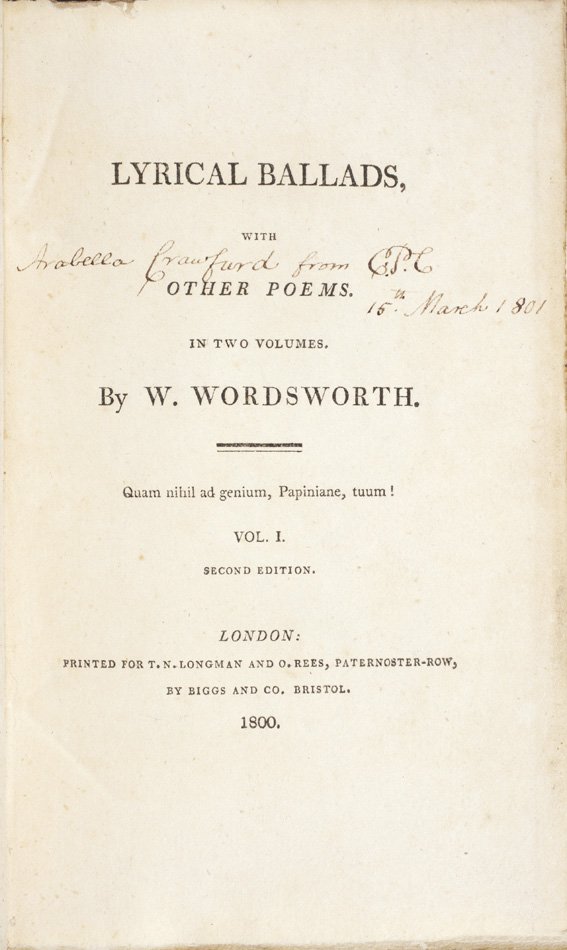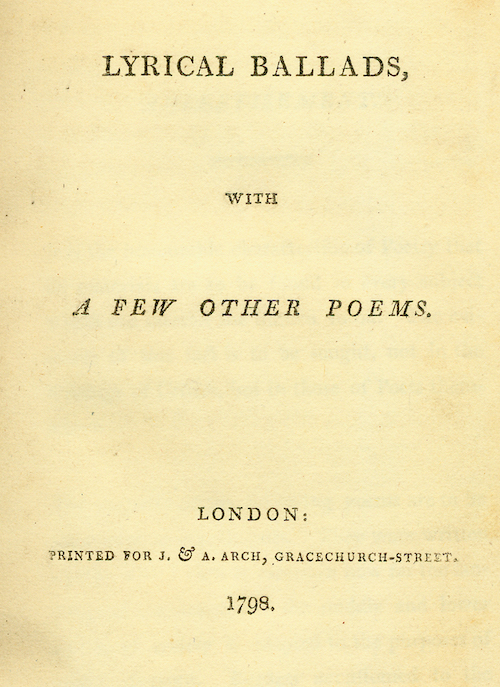
Wordsworth's 'We are Seven' depicts a child's naive optimism in the face of the cruel mortality, while 'Goody Blake and Harry Gill' and 'Simon Lee' celebrate the simplicity and strength he perceived in country people, and 'Tintern Abbey' explores the healing powers of nature.This Penguin Classics edition allows readers to recapture the full impact and power of Lyrical Ballads. Coleridge's contribution includes the nightmarish vision of 'The Rime of the Ancyent Marinere', one of the works for which he became best known, as well as the fantastical conversational poem 'The Foster-Mother's Tale' and the melancholic 'The Nightingale'. The volume heralded a new approach to poetry and expresses the poets' reflections on mankind's relationship with the forces of the world. A collection of poems exemplifying Romantic aesthetic ideals, whose unique beauty lies in their revolutionary exploration of the 'overflow of powerful emotions recollected in tranquility', Samuel Taylor Coleridge and William Wordsworth's Lyrical Ballads is edited with a note on the text by Michael Schmidt in Penguin Classics.Published in 1798, Lyrical Ballads is a dazzling collaboration containing twenty-three poems by close friends, William Wordsworth and Samuel Taylor Coleridge - two major figures of English Romanticism. Wordsworth’s near-quietism rises to drama in his verse by its aspirational quality, just as his deathless hope, or hope in deathlessness, finds no secure basis in faith and doctrine until late in the poet’s career.Paperback. Still, tangible things seen, and recalled, can also be our home if we live alongside them with humility and self-distance, welcoming what is given and craving no more. “Our destiny, our nature, and our home, / Is with infinitude-and only there / With hope it is, hope that can never die, / Effort, and expectation, and desire, / And something evermore about to be” (6:538-42).

While admiring the patriotic magnanimity and modesty of his French acquaintance Michel Beaupuy, Wordsworth also claims that our destiny lies with things unseen and-less conventionally-with an indeterminate, ever-receding future.

What abides on earth is the cardinal virtue related to hope, magnanimity, the greatness of soul that aspires to great things, as well as the countervailing virtue of humility.


Wordsworth engages with the Christian wisdom of his day, wherein worldly wishes-for glory or wealth, permanence or improvement, adequate sensory pleasure-give way to super-sensual hope in eternity and infinity.


 0 kommentar(er)
0 kommentar(er)
